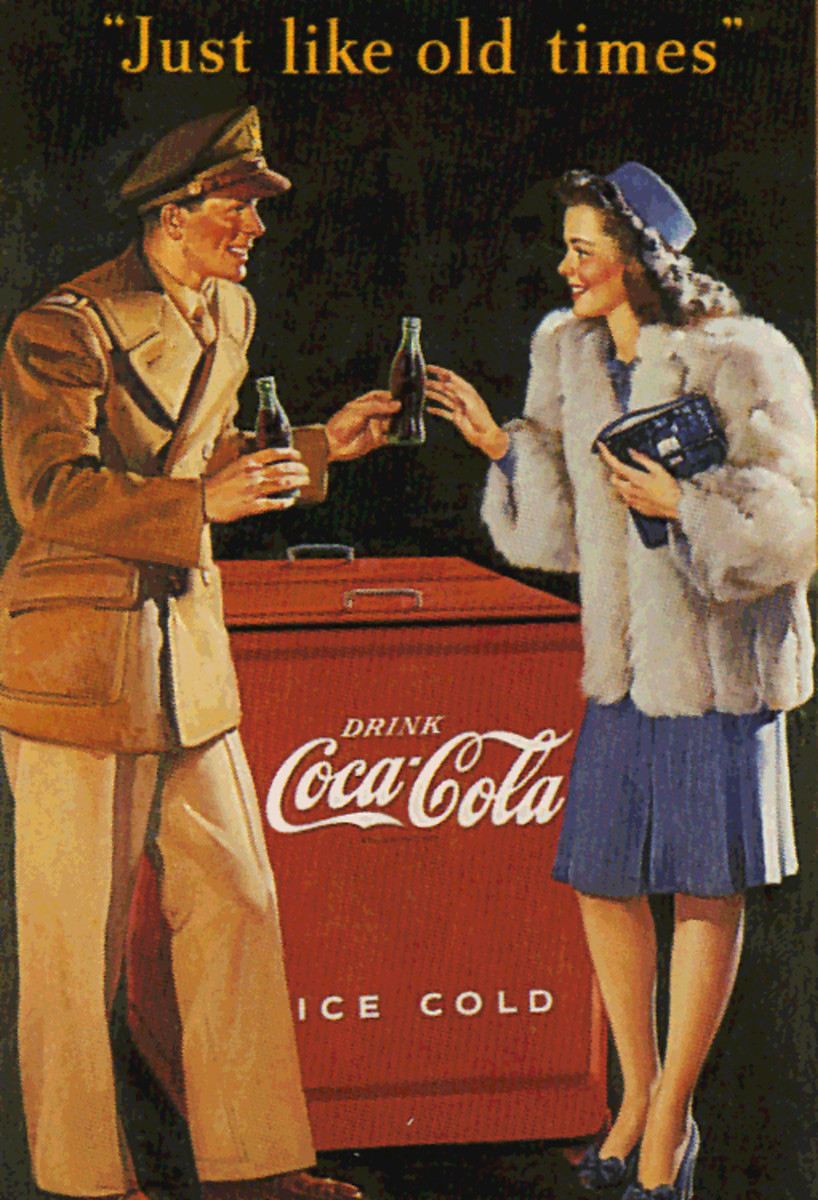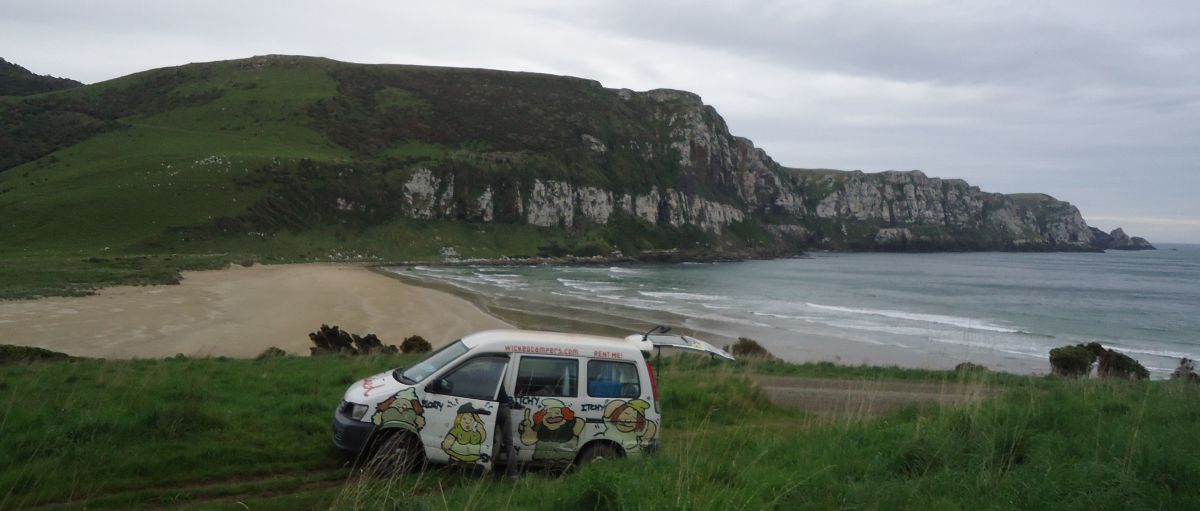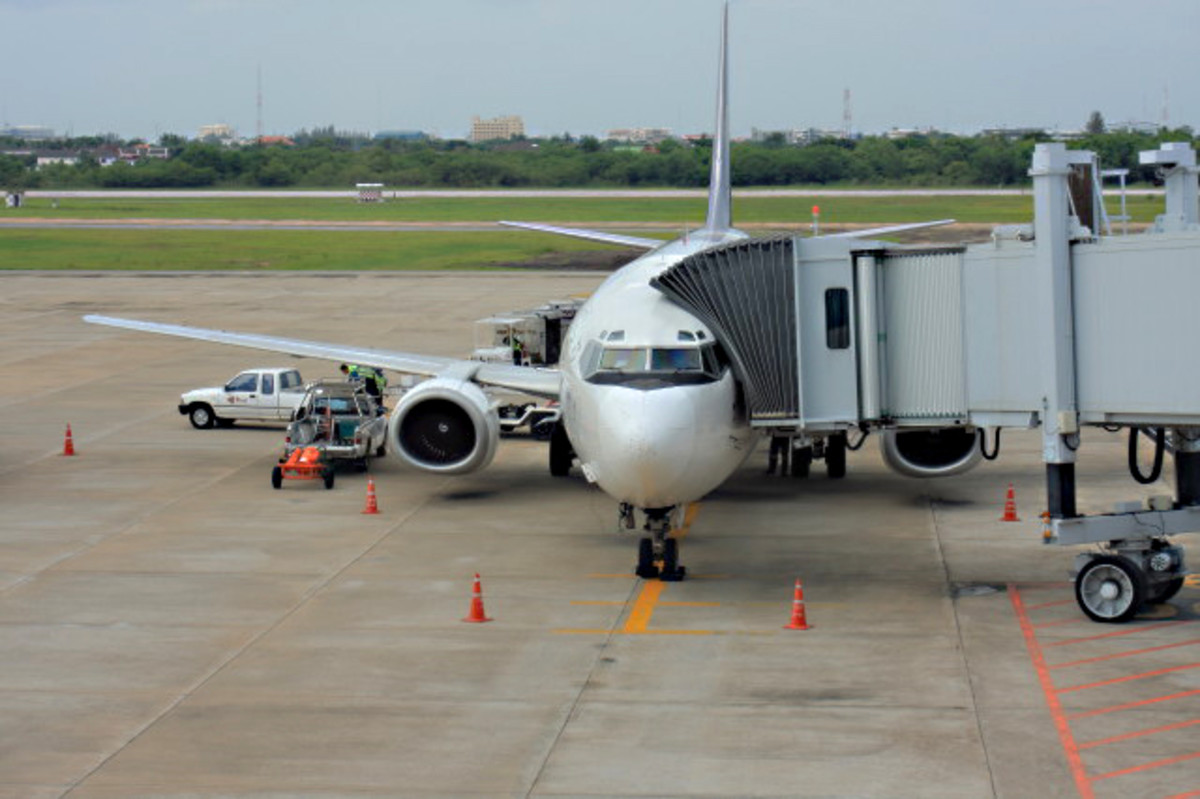Tips For Your First Trip To Europe

Going to Europe?
Americans going to Europe for the first time may find themselves slightly overwhelmed. On top of that, they may have heard rumors that Americans overseas are treated badly or get poor service. They may worry whether their English will be understood in many countries.
Here are some tips to avoid problems and get the most out of your trip.
Passports and Visas
Make sure you have a valid US passport with an expiry date no less than six months after the final day of your trip. Allow three to four months to get a new passport - the passport office can be very slow and expediting passwords is expensive.
Pretty much all of Europe is covered by the visa waiver programme, meaning you do not need a visa for trips up to three months in duration. You will have to fill out a landing card on the plane. Turkey and Russia do require visas, if you are going that far east.
There are generally few or no border controls between member countries of the EU and you may have to specifically ask if you want your passport stamped for souvenir purposes (something most customs officials are quite willing to do).
Money
Visa, Mastercard and American Express cards will work throughout Europe, with Visa generally being the most accepted. However, very few outlets overseas will take Discover cards. If you only have a Discover card you will need to apply for a second card or get a preloaded card. The former is the better option if you are planning a lot of trips.
It is absolutely and completely not true that your American magnetic strip card will not be accepted in countries, such as the United Kingdom, that use a chip and pin system. What is true is that many automated systems will not take the cards and it has been my experience that younger clerks are often not trained on magnetic stripe systems. If a clerk tells you they can't take the card, either gently explain that they can and how to swipe it or call for the manager. (The latter course is better if the clerk's English is not that good).
I recommend also taking your bank debit card, which should work in most foreign ATMs. HSBC ATMs in England are the one exception I know of and there may be others. It should not, however, be too hard to find an ATM that works. Avoid using credit cards in ATMs - fees are higher. In England, ATMs are, if anything, easier to find than in America. Almost all grocery and convenience stores have ATMs.
You can also get a preloadable chip and PIN card, but these are expensive. Visa and MasterCard are both moving towards adopting the technology, which offers much better fraud protection than traditional cards, so it's entirely possible your next credit card will be chip and pin capable. Discover has also announced a conversion plan, although, again, Discover cards are not often taken overseas.
It is completely unnecessary, these days, to get physical cash in advance of your trip or to mess around with travelers' cheques.
Language
How well you can get by with English varies from country to country. (I personally found that, out of the countries I have visited, Poland was the hardest). England is obviously the easiest.
In most European countries, English is the first second language taught in schools. I do recommend taking a phrasebook (or a phrasebook app for your smart phone) for the countries you intend to visit. I also highly recommend, unless you are as linguistically lousy as I am, trying at least basic greetings in the language of the country you are visiting. Especially if it happens to be France. It's also good to try and memorize the names of common foods and types of meats. In general it is best to avoid restaurants with bilingual menus, which tend to be expensive tourist traps, unless they are hotel restaurants.
Don't worry too much about language, though. Humans are amazing communicators and it's often possible to get your meaning across even without a single word in common.
Culture
Read up on the culture of the country you are visiting, most especially details of etiquette. For example, it is unacceptable in France to walk into any restaurant other than a fast food outlet in a t-shirt...a trap many Americans fall into. In most of Eastern Europe, it is still a faux pas not to hold a door open for a lady. In many countries, hats should be removed when you enter a building (unless you cover your head for religious reasons).
In England, do not open an umbrella indoors - it's still considered bad luck by many people. And if you travel to Slovakia or the Czech Republic, absolutely do not call either of them Czechoslovakia. (They weren't even too keen on it when they were technically one country). In Greece, they nod the head in different ways for both yes and no and simply don't understand shaking it.
Wherever you go, avoid discussing religion, politics and American foreign policy. And bear in mind that soccer is very important to many people - don't diss the sport or their teams.
Transportation - Cars
Continental Europe drives on the right. England and Ireland drive on the left. It's a good idea to avoid renting a car and taking it from England to Europe or vice versa.
Most European countries do not require you to have an international drivers' license, but strange requirements do show up - one rental office I made inquiries with wanted evidence that we owned our own car. Insurance requirements are often not the same as in the United States. For example, in England, rental companies generally offer only the legally required third party coverage. As full coverage is not required, they find it cheaper for everyone to self insure.
Check rental requirements, including minimum ages, before leaving home. Make sure the rental company you choose offers automatic gearboxes. In England a semi-automatic box is a different thing from a semi-automatic box in America - it is a gearbox that can be switched between automatic and manual modes. Smaller companies may not have automatics, and expect to pay more for one even from major international companies. Gas prices are a lot higher than they are in the United States and speed limits, on the whole, are also a bit higher. In continental Europe everything is in kilometers, including speed limits. Roads may be a lot narrower than you are used to and even some highways may feel cramped. In rural areas you may find yourself on a single lane road with the only way to get past a car in the other direction being a handy gateway.
You may be able to manage without a car at all, unless you are going to rural areas. Europeans have a very different attitude from Americans to public transport.
Transportation - Public Transport
Americans are married to their cars. Europeans are not.
Research your destinations. The majority of cities have good internal public transport but a few (Birmingham in England comes to mind) do not. London and Paris have great networks and if you are going anywhere east of the old iron curtain and sticking to cities, don't bother with a car. You'll never need it and you won't be able to park it.
In western Europe, public transport means buses and in some cities subways. In Eastern Europe it still means...streetcars. Most Eastern European cities never got rid of their streetcars and the new networks being put together in western Europe and America are buying rolling stock from eastern Europe. Be aware that it is common in the east to have to buy a second half ticket if you have a suitcase.
Getting between cities, you have three options. Long distance coaches similar to Greyhound are available. For very long trips, you can get flights on a low cost carrier - I recommend EasyJet for cheap, no frills, reliable transport.
Mostly, however, the motto for getting around in Europe is "take the train." European passenger trains do not get stuck behind freight trains all the time and ten minutes is unacceptably late rather than effectively early. Many countries have high speed rail and those with older networks have mastered the art of the tilt train. You won't find high speed rail in eastern Europe, and much of the rolling stock looks like the Communists built it (corridor trains, anyone?) but the trains run on time. Seriously. On long distance trains, you should hear announcements in several languages including English.
Basically, in Europe, trains are good. One option is to get an X day Eurail pass, allowing you to go anywhere for one price.
One last thing - ferries. You can take ferries to the various islands off of northern Europe and there are also ferry routes between, for example, eastern Italy and western Greece. Ferries are sometimes the only way to get to the smaller Mediterranean islands. In contrast, large passenger ferries still run across the North Sea and the English Channel. If crossing the channel, however, I recommend either taking the train or considering a more exotic ferry option. Sea Cats run from Dover to Calais. Hovercrafts used to run that route, but this has apparently now ceased, mostly due to competition from the Chunnel. If you want to take a hover ferry trip these days, you will have to visit the Isle of Wight.
Food and Drink
Food varies immensely across the continent. Each country has its own style and way of doing things.
In England, go to a pub and order a classic pot pie, or find a hole in the wall fish and chips outlet. In Germany, sausages and kraut are the order of the day. Most eastern European countries have their own variant on the wonderful stew called ghoulash or gulash. (And, pro tip, also a good place to order game including venison and wild boar). Anywhere around the Mediterranean, you should hit the surf for wonderful fresh fish, but be warned, removing the head is something you often have to specially request. And, of course, Greece has moussaka and baklava.
Look for local and regional specialties. Order potatoes as your side anywhere from Germany east and you will not regret it. Be careful of pizza, though - make sure it is not "American style." Unless, of course, you want a good laugh and an insight into how most Chinese probably feel about American Chinese food. For example, in Krakov, we found an "American style" pizza outlet with offerings that included "Texas style" pizza - chicken, sweetcorn, and broccoli. Nobody in Texas would put chicken anywhere near a pizza...let alone broccoli.
And in France, order whatever you want and it will be good. Their reputation is not unearned.
Drink wise, expect soda made with sugar, although be warned that some European companies put aspartame in the regular soda. If you're sensitive, check the ingredients. You may find soda flavors you have never heard of, most of which are worth trying at least once. You should also be able to get the juice flavors you are used to.
Beer unites northern Europe and is often the cheapest drink in the east. The French and Mediterranean people prefer wine. Greek wine is surprisingly good and the Spanish produce some excellent reds. (Surprisingly, Germany also has some good white wines available). Be warned that in some parts of Europe beer is served at room temperature. It is supposed to be. If in England or northern France, look for hard ciders that are better than anything you will find in the United States or, for something really different, perry, which was impossible to find in the U.S. until very recently. England also has some interesting wines that are made from all kinds of things other than grapes - ask about "country wines" in a pub and you may find something interesting. Avoid drinking scrumpy (farm gate cider) unless you want to play alcohol content Russian roulette.
Oh and anywhere you go, try the local cheese.
Safety
If calling the police in an EU country, you no longer have to know the emergency number for that country - 112 will do it. If outside the EU, make sure you know what the number is. Find out ahead of time whether your cell phone will work in the EU. (The majority of American cell phones do not). Solo travelers should consider snagging a disposable cell on arrival.
In major cities, your biggest risk is pickpockets - guard your valuables and, if possible, put your passport in an inside pocket. Make two photocopies of the relevant pages of your passport. Leave one in the United States and make sure somebody knows where to find it. Take the other with you and keep it somewhere safe. Find out where the bad parts of town are so you can avoid them, and be careful traveling alone after dark.
Most European cities have "official" cabs - if you need to get back to your hotel room late, take one. Don't jump into just any car that claims to be a cab, as it's likely to be a gypsy or worse. Official cabs have a specific paint job and are a specific type of vehicle - the huge black London cabs are the most famous example. Most official cabs can handle a wheelchair. If you know what time you will need the vehicle, then have your hotel concierge call you a hire car for that time and location.
Follow normal vacation common sense rules. Don't swim off isolated beaches that don't have lifeguards. Wear safety gear for whatever activities you are performing and look both ways before crossing the road. (Be particularly careful in England. It's easy to forget that they drive on the other side of the road).
Make sure your health insurance company will cover the expense of a medical evacuation. If in doubt, get trip insurance.
If in doubt, don't drink the tap water. It's safe in England, dodgy in most other places. Be aware of any issues you have with food.
Don't withdraw money from an ATM late at night with not many people around. Don't flash cash or valuable jewelry. Common sense is the most important thing.
Accommodation
Expect some differences unless you stay in an American-owned chain (which I don't recommend).
Twin beds are standard in most hotel rooms. You may be able to get a double bed if you specifically ask for one...but it may also be two twin beds pushed together Also, expect your room to be smaller than the American standard. Sometimes quite a lot smaller. Often, if the room has a double bed it's because they couldn't fit two twin beds in there. Bathrooms the size of the average walk-in closet are also normal.
Showers tend to be, to be blunt, crap. Water pressure is lower, on the whole, and only very expensive hotels will offer the kind of nice walk-in showers that are more common in the US. Some bed and breakfasts may not have en-suite bathrooms, although this is a lot rarer than it used to be and sometimes you can find a very good deal if you're willing to walk down the hall. However, on the whole, staying at a bed and breakfast if you can find one is the cheaper option because they tend to provide very good breakfasts...an English full breakfast is often enough food that you don't want lunch.
If you are disabled, call the place first and make sure they can accommodate you. Many bed and breakfasts and smaller, older hotels have no elevators. And bear in mind that in British English, 'first floor' is the first floor above the ground floor, so asking for a first floor room might get you in a lot of trouble. I have also seen hotels where they have elevators...but not ones large enough to accommodate a wheelchair. It's best to spend the extra money, call, and explain all of your specific needs. The other end of the spectrum is that some places have fantastic, fully equipped disabled rooms with great bathrooms and everything you could need...if you can find them. Service dogs have to be accommodated throughout the EU.
Agritourism was invented in rural parts of northern Europe long before the word was. If touring more rural areas, look for farmhouse bed and breakfasts. There are also still a few inns (pubs with rooms) around, some of which are excellent. You might even get to stay in a building older than your country.
Note that the 'motel' is an American concept. Although road tripping and finding accommodation on spec where you happen to stop is not impossible, it is not as easy as it is in the United States.
Finally, you can make use of the fact that Europe still has sleeper trains. You can easily have dinner in Paris, get on a train and have breakfast somewhere in Spain. If going from England to Scandinavia you can also get a cabin on an overnight ferry and again combine accommodation and travel. (On the other hand, do you really want to sleep through what might be a fantastic train trip?)
Final tips
1. Jet lag! You will get it. Don't plan anything for the day you arrive (Very few flights to Europe are not red eyes). Force yourself to stay up until a sane bed time and to eat on the destination schedule and you can skip most of the normal several day recovery time. (It's five time zones from the east coast, eight from the west).
2. Fly a European carrier for your transatlantic flight - in general, they offer more amenities and better service than U.S. carriers. I recommend Virgin Atlantic for east coast to London flights. Iceland Air will give you decent service with a stopover of up to seven days in Reykjavik at no extra charge. This is a good option if you want to take in that wonderful island in the far north.
3. Step out of your comfort zone. Don't eat at McDonald's. Especially don't eat at fast food burger joints in England. Trust me. Americans can't make fish and chips. Brits can't make hamburgers. Try the local food, try the local activities, learn a few words of the local language.
4. Rail passes are great, but they are not valid on Eurostar trains - buy your London-Paris ticket separately. And don't bother with a Eurail pass in eastern Europe - tickets are a lot cheaper there and you will actually end up spending more.
6. Inform your credit card company and bank of your travel dates and which countries you are visiting before you go - yes, give them the full itinerary. This will stop the embarrassment of them blocking your card for a fraudulent transaction that was actually you. Also make sure you have an international number so if the card is stolen you can call them.
7. If you are on medication or wear glasses, take your doctor's number with you. Then you can call them and get a copy of your prescription for emergency replacements.








